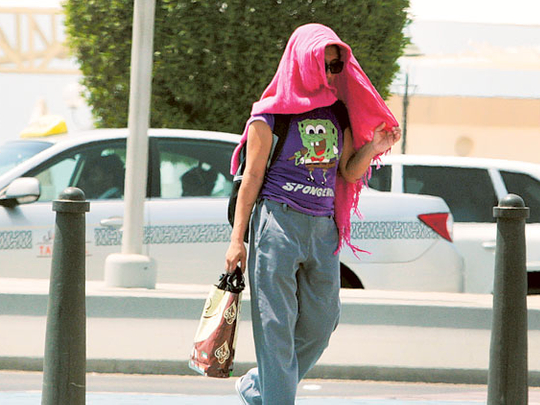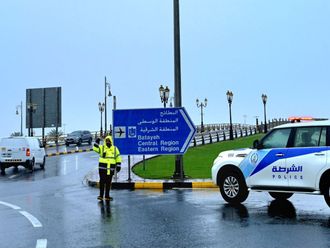
Al Ain: The weather is expected to remain mercilessly hot this month with mercury staying mostly in the mid-40 degree Celsius.
Ramadan will be bit tougher this time, said the forecaster.
The conditions could further aggravate with the hot southerly and south-easterly winds coming in from the heat cyclones that develop in the Empty Quarter. Forecasters also expect rather dry and hot conditions during the first 10 days of Ramadan, expected to start from July 20.
“We are expecting the hottest conditions in the coming days,” said a forecaster. July and August are the hottest month of the year.
The meteorologist said that the change in the country’s weather is not unusual as it is in accordance with the seasonal atmospheric depressions in the desert areas. Talking about the average temperatures, he said that temperature in July ranges from 42 degree Celsius to 48 Celsius.
Some GCC countries have already issued warnings amid fears of temperature rising up to 50c. Eating and drinking in public will be banned during daylight hours in Ramadan and health expert have been anticipating a rise in patients suffering from dehydration and heat exhaustion, particularly workers who spend most of their time outdoors.
Meteorologists in Saudi Arabia fear ground temperatures may shoot up to 50c to 70c in some parts of the kingdom.
The Ultraviolet radiation from the Sun increases in the UAE in July. The maximum radiation time is at 12pm and people should avoid long exposure to sunlight during this month. Apart from fasting Muslims, the second high-risk group includes children, who play in the open, European expatriates and people with fair skin colour.
Occasional strong winds and dust storms may also hit the UAE but towering clouds with infrequent rain and thunder activity could also happen in the eastern and mountainous areas. These areas could come under the influence of the monsoon effects extending from the Arabian Sea.
The forecaster said hot winds could reduce the level of humidity in Abu Dhabi and other coastal areas. Visibility will also drop down at early morning time due to mist and dust stirred by the winds. The coastal areas of the UAE could face morning foggy conditions at times, he explained.










